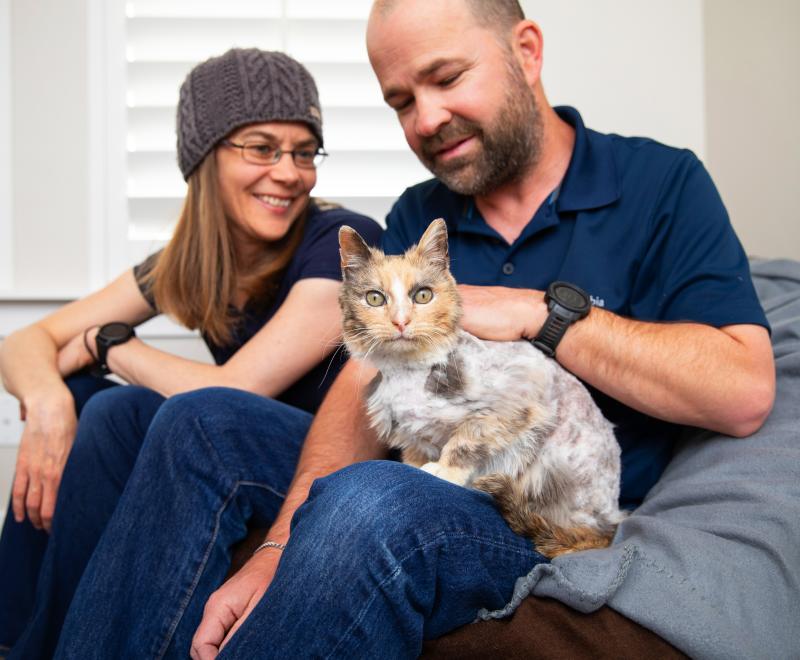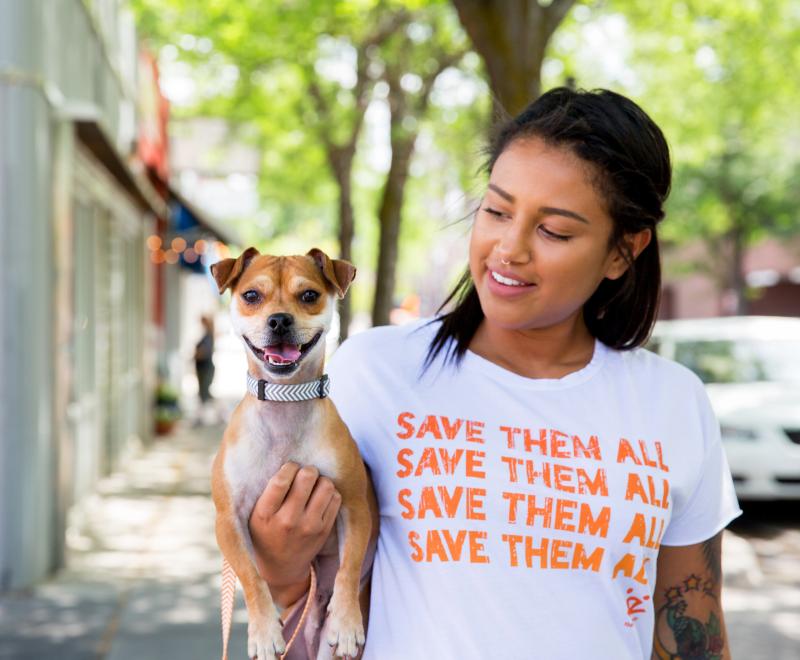Faces of No-Kill: Tiny kitten’s journey to health

Do you know any cats who work at the biscuit factory? You know the ones: They’re always kneading their paws on a soft blanket or in the air while purring contently. All Concord wanted to do was make biscuits — but life kept throwing medical challenges his way.
This story is a part of our Faces of No-Kill series, highlighting the journey of pets who lost their place to call home. These pets are thriving today thanks to animal shelters that said yes to lifesaving and found a way to save them. Best Friends’ goal is for every shelter and every community to reach no-kill in 2025, and this story shows why that’s so important.
Small but mighty
Tiny Concord was in rough shape when he arrived at the Best Friends Lifesaving Center in Salt Lake City from a nearby shelter. He barely weighed a pound, much less than a 3-month-old kitten like him should weigh. Despite his dull gray coat and goopy eyes, the vet staff could clearly see his sweet spirit.
Best Friends veterinarian Dr. Megan McCarthy quickly assessed Concord’s health issues, diagnosing him with an upper respiratory infection and panleukopenia, an intestinal virus that can be deadly.
“He wasn’t perking up after his panleukopenia treatment. He still was very nauseous and couldn’t keep food down,” Dr. Megan explains. “We determined that he had an intestinal obstruction and required emergency surgery.”
[Swift teamwork saves kittens with a deadly virus]
After surgery, Concord just wanted to snuggle and make biscuits. Best of all, he was eating well — a hopeful sign that things were improving. Concord went to a loving foster home to recuperate, but something still wasn’t quite right.
“He wasn’t growing like a normal kitten would. He stayed very, very thin and had a hard time continuing to keep food down,” says Dr. Megan.
One night, Concord became so lethargic that he was rushed to an emergency vet clinic. This time, X-rays revealed he had megaesophagus, a large dilation of the esophagus that causes vomiting and prevents food from making it to the stomach. This fragile kitten had to undergo surgery again.

Turning the corner
As he recovered from his second surgery, it was back to foster care for Concord. He arrived with a regimented feeding plan: He had to eat standing up and remain in that position for 20 minutes. To accomplish this, his foster caregivers fashioned a kind of highchair for eating. When he finished enjoying his meal, they would carry him around to keep him upright. Foster volunteers don’t just provide a temporary space for pets in need; they put their time and whole heart into it.
Concord steadily gained weight and finally mustered up the energy to play. And play he did. From wand toys to jingle balls to that orange swirly thing, he reveled in each play session like any sprightly kitten should. He continued to be an affectionate biscuit maker and even got used to being carried around like a snuggly baby.
[Best gift ever for an orphaned kitten with megaesophagus]
“He’s extremely resilient,” says Dr. Megan. “Despite all the things that he’s had to go through, he’s still such a sweetheart. We’re glad that we (could give) him a chance.”
Soon, Concord was given the medical all clear. This bright-eyed boy wouldn’t have to wait long for a family. Alli, who had been Concord’s caregiver at the lifesaving center, knew she had to bring him home.
Once upon a time, Concord needed extraordinary measures to survive. But today, he delights in living an ordinary life with his humans and other furry friends. Concord supplies his family with love, laughter, and, of course, plenty of fresh biscuits.

Let's make every shelter and every community no-kill by 2025
Our goal at Best Friends is to support all animal shelters in the U.S. in reaching no-kill by 2025. No-kill means saving every dog and cat in a shelter who can be saved, accounting for community safety and good quality of life for pets.
Shelter staff can’t do it alone. Saving animals in shelters is everyone’s responsibility, and it takes support and participation from the community. No-kill is possible when we work together thoughtfully, honestly, and collaboratively.






